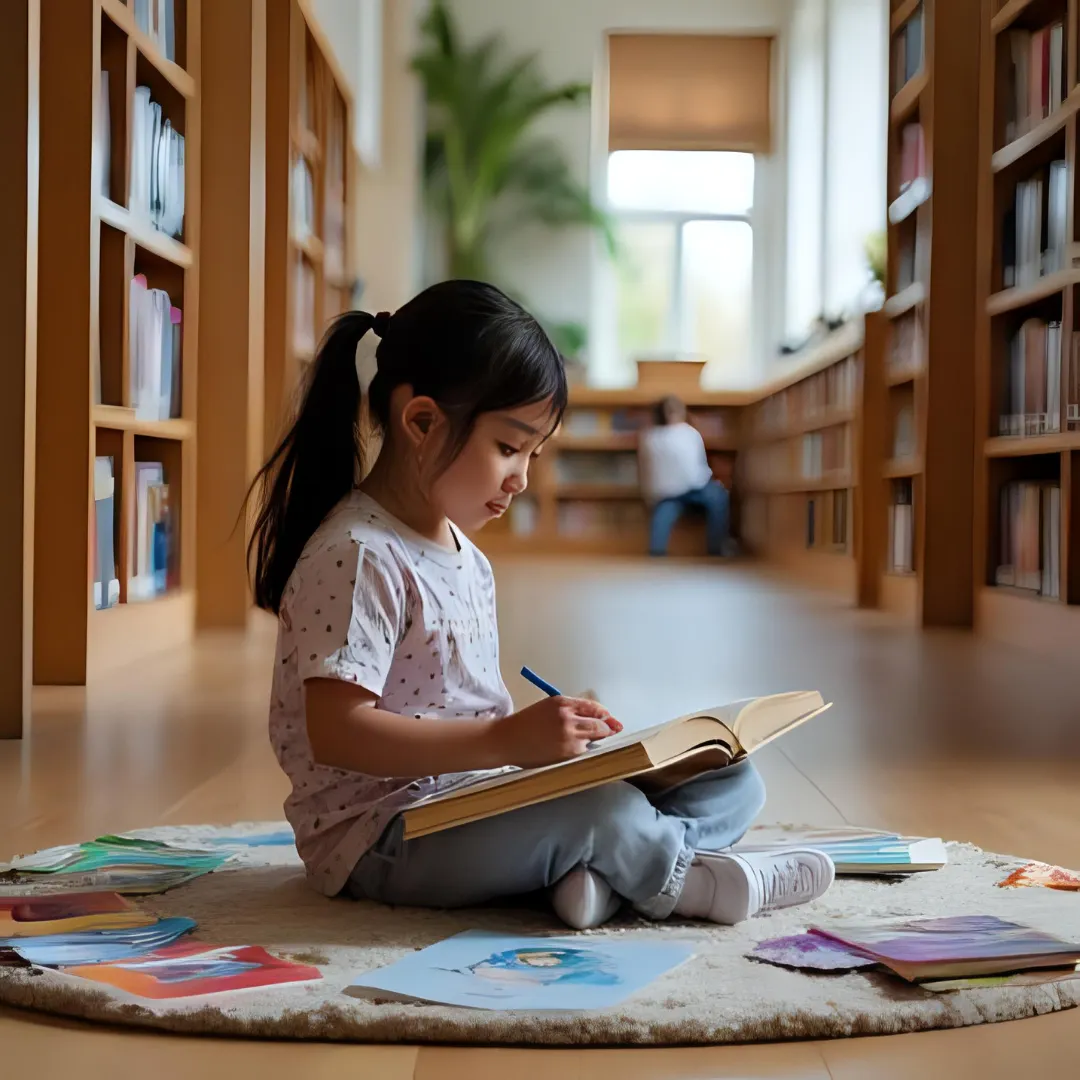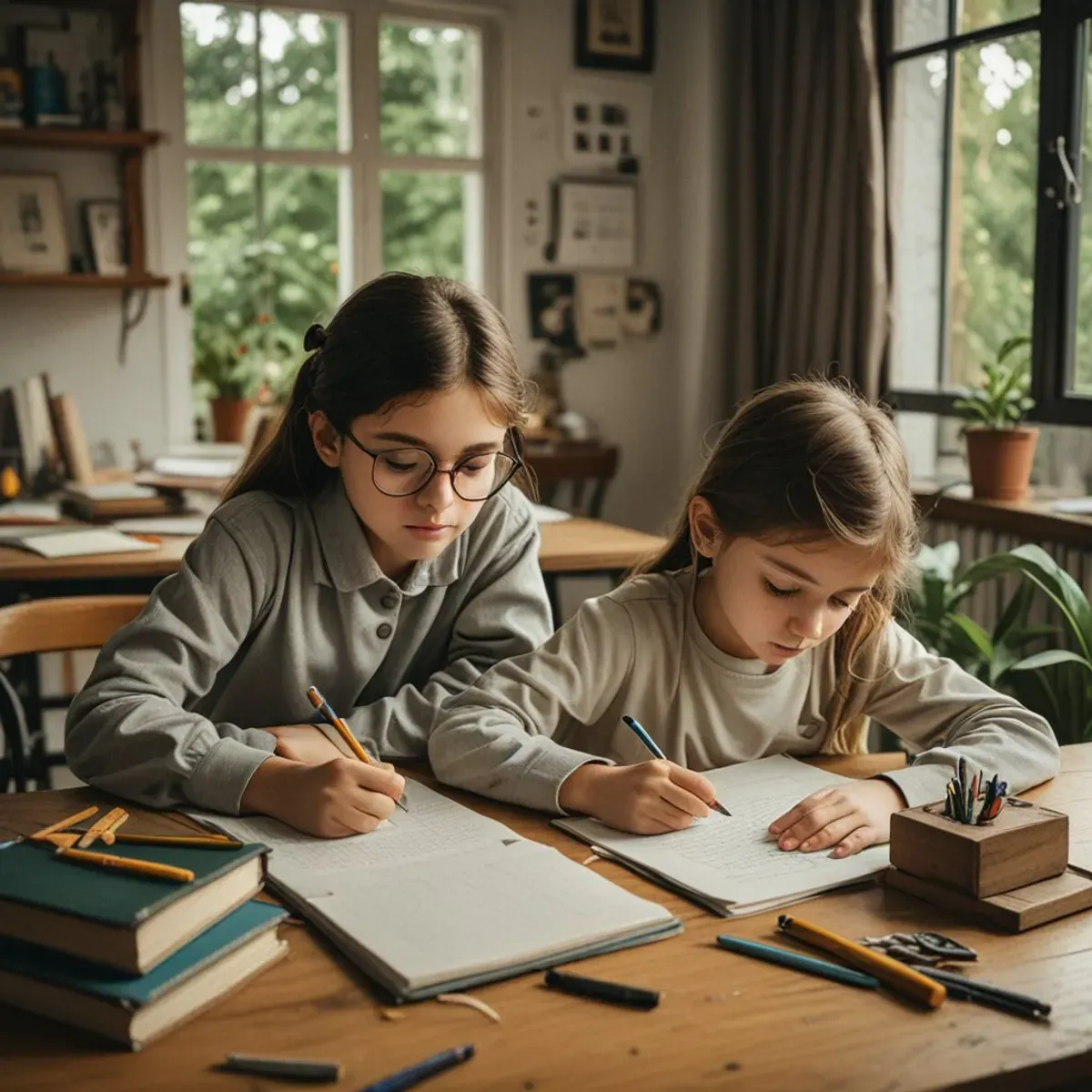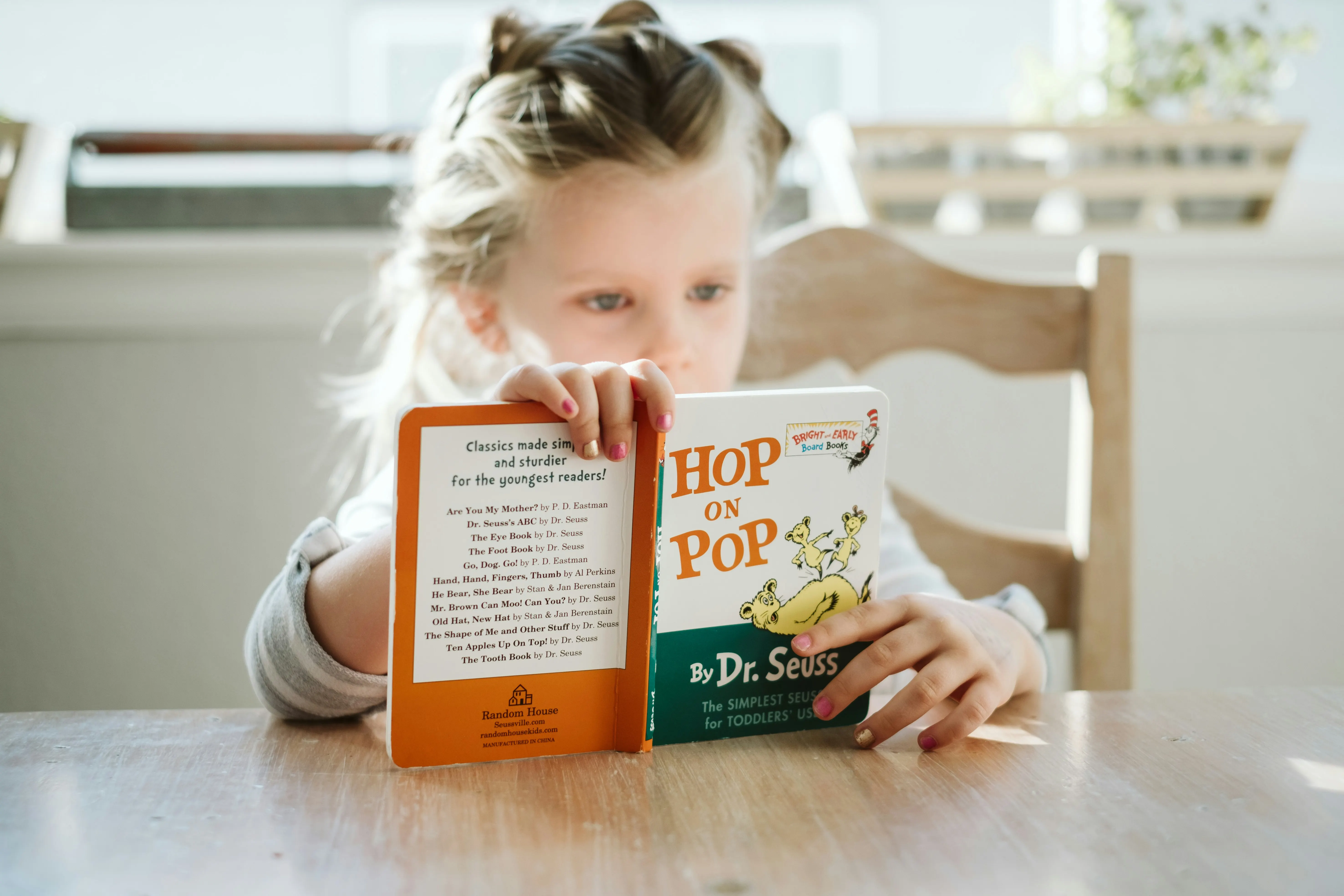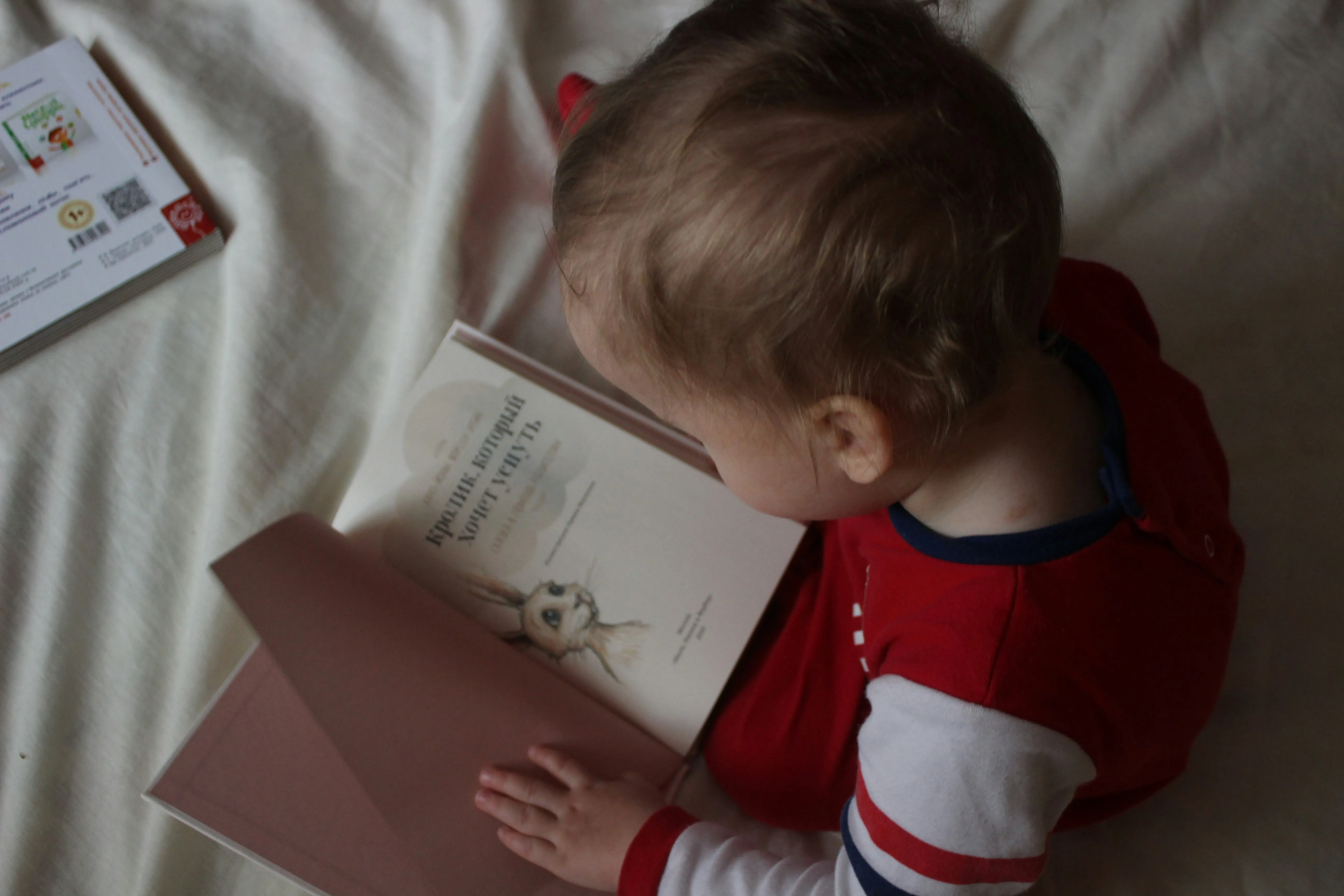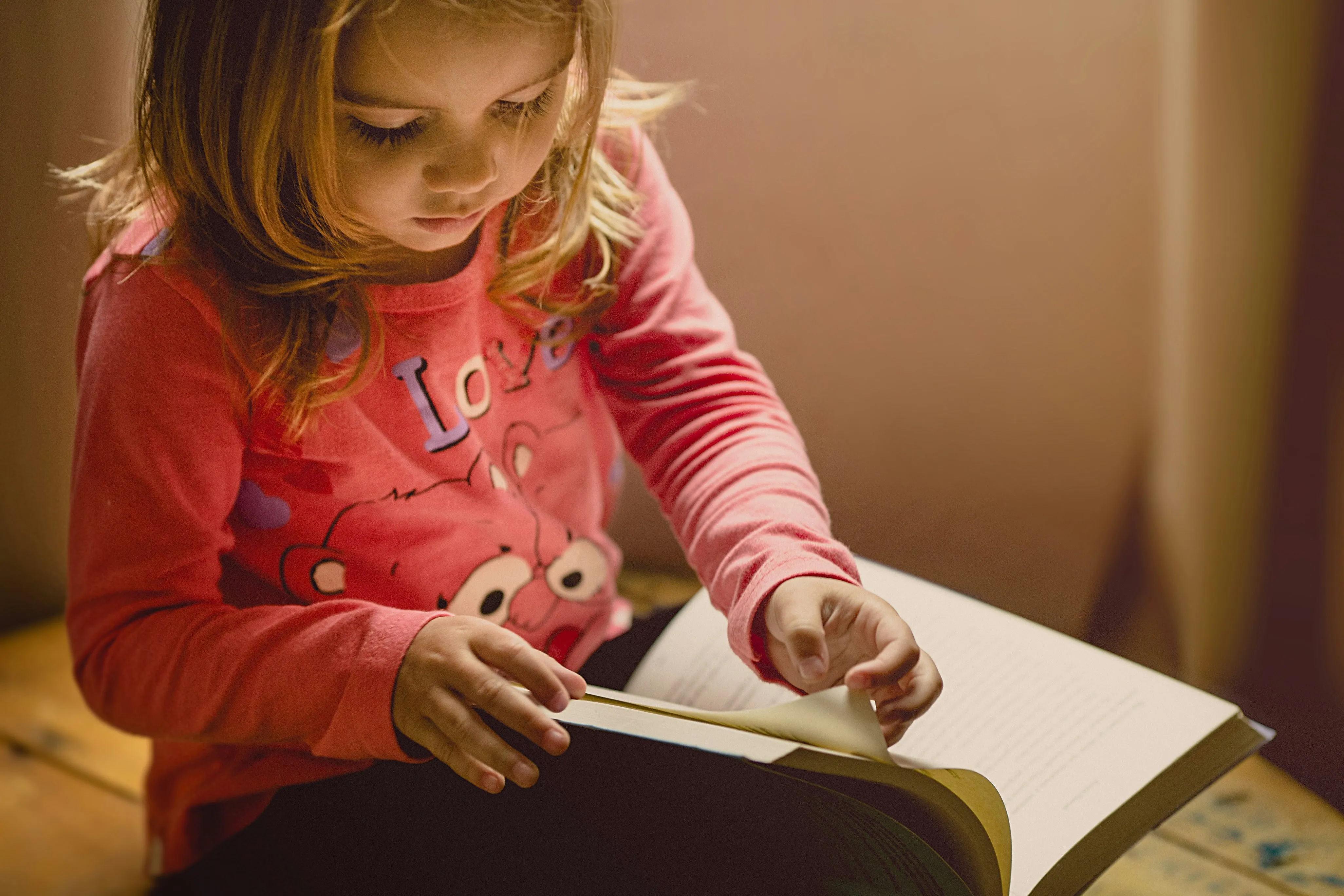Early Literacy Skills in Newborns to 36-Month-Olds
This first article is a summary by Perplexity
The 6 Early Literacy Skills
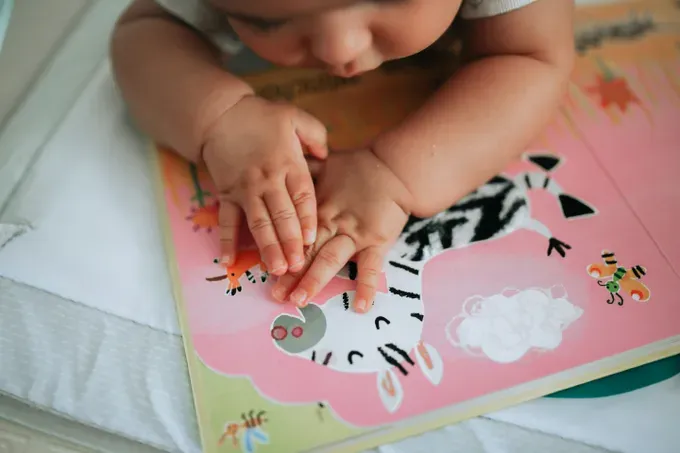
The development of early literacy skills in children from newborns to 36 months old involves various cognitive, motor, and social abilities. These skills are crucial for their future reading and writing abilities. Here are the key early literacy skills:
- Print Motivation: Children's interest and enjoyment in books. Encourage this by making reading a fun and regular activity in their daily routine[6].
- Vocabulary: Knowing the names of things. Build vocabulary by describing feelings and experiences, pointing out and naming pictures in books, and making real-life connections to words in books[4].
- Print Awareness: Understanding that text has meaning. Develop this by pointing at pictures, turning pages, and recognizing that text is what you are reading[6].
- Narrative Skills: Describing sequences and events. Help develop these skills by asking the child to retell stories, asking "what's happening?" during reading, and encouraging storytelling[4].
- Letter Knowledge: Recognizing letters of the alphabet. Develop this by pointing out letters in books and the child's surroundings, progressing to letter recognition[6].
- Phonological Awareness: Matching sounds with letters. Develop this through singing songs, reciting rhymes, and recognizing that words are made up of smaller sounds[6].

For newborns to 12 months, support these skills by describing feelings and experiences, providing books with large and colorful pictures, and responding to vocalizations and gestures[2][5].
For 12 to 24 months, let the child control the book, respond to their prompts to read, and provide books with pictures of familiar activities[1][5].
For 24 to 36 months, ask "what's happening?", encourage writing and drawing, let the child tell stories, and provide books about shapes, size, the alphabet, counting, animals, fruits, etc[1][3][5].
Remember, these skills develop best through everyday moments with your child—reading, talking, laughing, and playing together[3].
This 2nd Version was rewritten by Jasper AI for readability.
6 Early Literacy Skills Every Parent Should Know for 0-3 Year Olds

Early literacy skills play a crucial role in a child's future reading and writing abilities. From newborns to 36 months old, children develop a range of cognitive, motor, and social abilities that lay the foundation for their literacy journey. As parents, it's essential to be aware of these skills and actively support their development. Here are the six early literacy skills you should focus on:
1. Print Motivation
Encourage your child's interest and enjoyment in books. Make reading a fun and regular activity by incorporating it into your daily routine. Take time to read to your child, exploring different genres and stories together.
2. Vocabulary
Building a strong vocabulary is essential for language development. Describe your child's feelings and experiences, point out and name pictures in books, and help them make connections between words they read in books and real-life examples.
3. Print Awareness
Help your child understand that text has meaning. Point at pictures in books, turn book pages together, and gradually introduce the concept that the text represents what you are reading. This builds the foundation for reading comprehension.
4. Narrative Skills
Narrative skills involve describing sequences and events. Encourage your child to retell familiar stories, ask questions like "what's happening?" during reading, and support their storytelling abilities. These skills enhance their understanding of story structure.
5. Letter Knowledge
Introduce your child to the letters of the alphabet. Point out letters in books and the environment around them, gradually helping them recognize and differentiate letters. This sets the stage for letter recognition and later reading and writing skills.
6. Phonological Awareness
Develop your child's ability to match sounds with letters. Sing songs, recite rhymes, and play with sounds to help them understand that words are made up of smaller sounds. This skill is crucial for phonics and decoding words.
Supporting these skills at different stages:
- Newborns to 12 months: Describe feelings and experiences, provide books with large and colorful pictures, and respond to vocalizations and gestures.
- 12 to 24 months: Let the child control the book, respond to their prompts to read, and offer books with pictures of familiar activities.
- 24 to 36 months: Encourage storytelling, writing, and drawing. Ask questions like "what's happening?" and provide books that introduce simple stories and concepts like shapes, size, alphabet, counting, animals, and fruits.
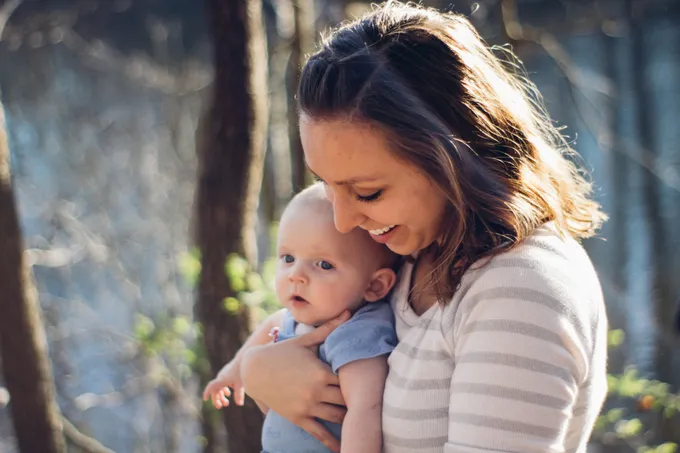
Remember, the best way to develop these skills is through everyday moments with your child. Spend quality time reading, talking, laughing, and playing together. By nurturing their early literacy skills, you are setting them up for a lifetime of learning and enjoyment with books.
Citations:
[1] https://www.uab.edu/medicine/peds/images/NBFU/Dev_Milestones_of_early_literacy_ROR.pdf
[2] https://www.zerotothree.org/resource/supporting-language-and-literacy-skills-from-0-12-months/
[3] https://www.zerotothree.org/resource/language-and-literacy-skills-from-24-36-months/
[4] https://www.carnegielibrary.org/kids-teens/early-learning-activities/six-early-literacy-skills/
[5] https://www.totsguide.com/single/blog/Early-Literacy-Skills-for-Infants-and-Toddlers/qvqO
[6] https://pregnancytoparenting.ca/2017/05/04/early-literacy-how-early-is-early/
[7] https://cps.ca/en/documents/position/read-speak-sing-promoting-literacy
[8] https://www.healthlinkbc.ca/pregnancy-parenting/toddlers-first-steps
"THANKS FOR READING!"
-SHiNER The Human and The AI Team
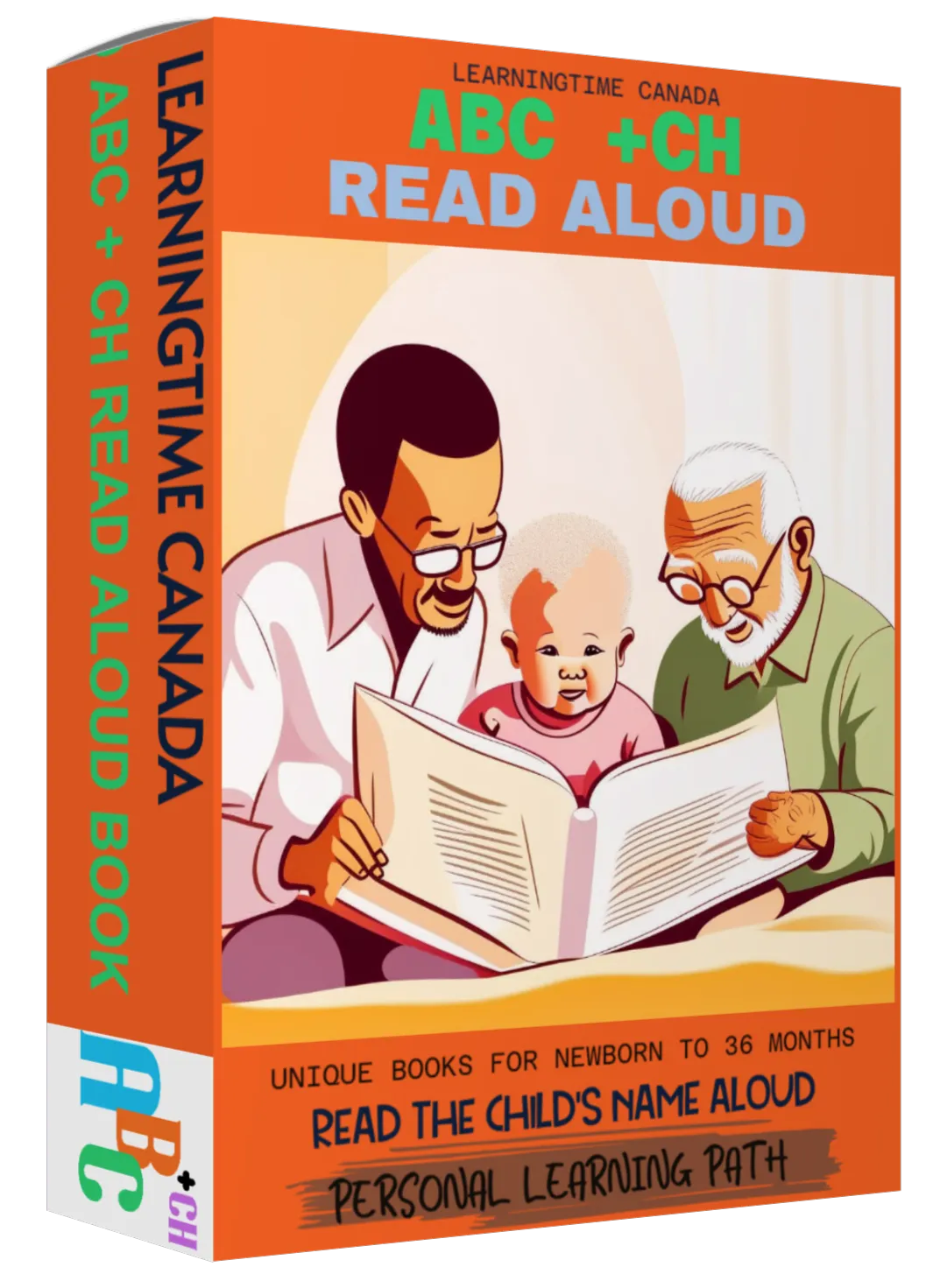
LEAVE A COMMENT ABOUT WHICH VERSION YOU PREFER. Thanks for being.
LEAVE A COMMENT OR SEND US A MESSAGE IF YOU HAVE ANY QUESTIONS.










